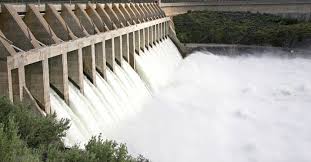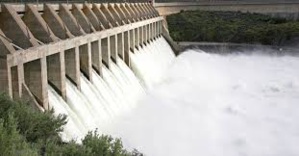An environmental, social and governance (ESG) performance standard has been introduced in the global hydro-electric industry by the Hydropower Sustainability Council (HSC) that aims to increase transparency and accountability in the industry. The HSC also hopes that this measure and companies following it will also give more confidence to investors while they chose to investment in new hydro-electric projects, the organization has said.
The performance standard that has been named by the Hydropower Sustainability Standard was launched at the World Hydropower Congress and aims to ensure that all hydropower projects throughout the world get recognition and certification for the environmental, social and governance (ESG) performance of the projects.
Despite accounting for about one sixth of the total electricity generated in the world in 2020, the growth of implementing new hydro-electric projects has slowed down. This is partly because of the long process of acquiring permissions, making risks from environmental assessments as well as strong opposition from local communities for some new projects.
“The hydropower sector needs a credible, transparent certification scheme that will incentivise the best projects,” Ashok Khosla, chair of the HSC said in a statement. “This new certification system is a game-changer for hydropower and is unmatched in the renewables sector, This will give communities, governments and investors greater confidence about their net benefits and how impacts on the local environment are mitigated,” he added.
The HSC is a global body represent5ing the hydro power industry and is comprised of representation from energy firms, government agencies, financial institutions and social and environmental NGOs.
Hydro electric power project developers will be required to put forward projects for the certification which is expected to be granted by an assessment of project proposals by independent experts who are expected to make use of several criteria such as labour and working conditions, climate change mitigation and resilience, community impacts and biodiversity impact.
A number of global hydropower project participants said they would seek to achieve the new standard.
“We will not participate in hydropower projects which do not fully comply with the requirements set forth in the Hydropower Sustainability Standard,” Pascal Radue, President and CEO of GE Renewable Energy Hydro Solutions said in the statement.
The Hydropower Sustainability Standard was developed on the basis of a public consultation process conducted by the Hydropower Sustainability Council in partnership with the International Hydropower Association (IHA).
Support for the new certification scheme has been expressed by all of the leading members of IHA. Developers, operators and manufacturers from a host of countries including Australia, Brazil, Canada, China, France, Germany, Iceland, Malaysia, the United Kingdom and the United States have either already assured of their plans of putting forward projects for certification or have pledged to convince their clients to comply with the new standard.
Support for the new industry assurance system has also been pledged by international organizations including the International Energy Agency (IEA), conservation groups, as well as former government heads.
(Source:www.hydropower.org)
The performance standard that has been named by the Hydropower Sustainability Standard was launched at the World Hydropower Congress and aims to ensure that all hydropower projects throughout the world get recognition and certification for the environmental, social and governance (ESG) performance of the projects.
Despite accounting for about one sixth of the total electricity generated in the world in 2020, the growth of implementing new hydro-electric projects has slowed down. This is partly because of the long process of acquiring permissions, making risks from environmental assessments as well as strong opposition from local communities for some new projects.
“The hydropower sector needs a credible, transparent certification scheme that will incentivise the best projects,” Ashok Khosla, chair of the HSC said in a statement. “This new certification system is a game-changer for hydropower and is unmatched in the renewables sector, This will give communities, governments and investors greater confidence about their net benefits and how impacts on the local environment are mitigated,” he added.
The HSC is a global body represent5ing the hydro power industry and is comprised of representation from energy firms, government agencies, financial institutions and social and environmental NGOs.
Hydro electric power project developers will be required to put forward projects for the certification which is expected to be granted by an assessment of project proposals by independent experts who are expected to make use of several criteria such as labour and working conditions, climate change mitigation and resilience, community impacts and biodiversity impact.
A number of global hydropower project participants said they would seek to achieve the new standard.
“We will not participate in hydropower projects which do not fully comply with the requirements set forth in the Hydropower Sustainability Standard,” Pascal Radue, President and CEO of GE Renewable Energy Hydro Solutions said in the statement.
The Hydropower Sustainability Standard was developed on the basis of a public consultation process conducted by the Hydropower Sustainability Council in partnership with the International Hydropower Association (IHA).
Support for the new certification scheme has been expressed by all of the leading members of IHA. Developers, operators and manufacturers from a host of countries including Australia, Brazil, Canada, China, France, Germany, Iceland, Malaysia, the United Kingdom and the United States have either already assured of their plans of putting forward projects for certification or have pledged to convince their clients to comply with the new standard.
Support for the new industry assurance system has also been pledged by international organizations including the International Energy Agency (IEA), conservation groups, as well as former government heads.
(Source:www.hydropower.org)






